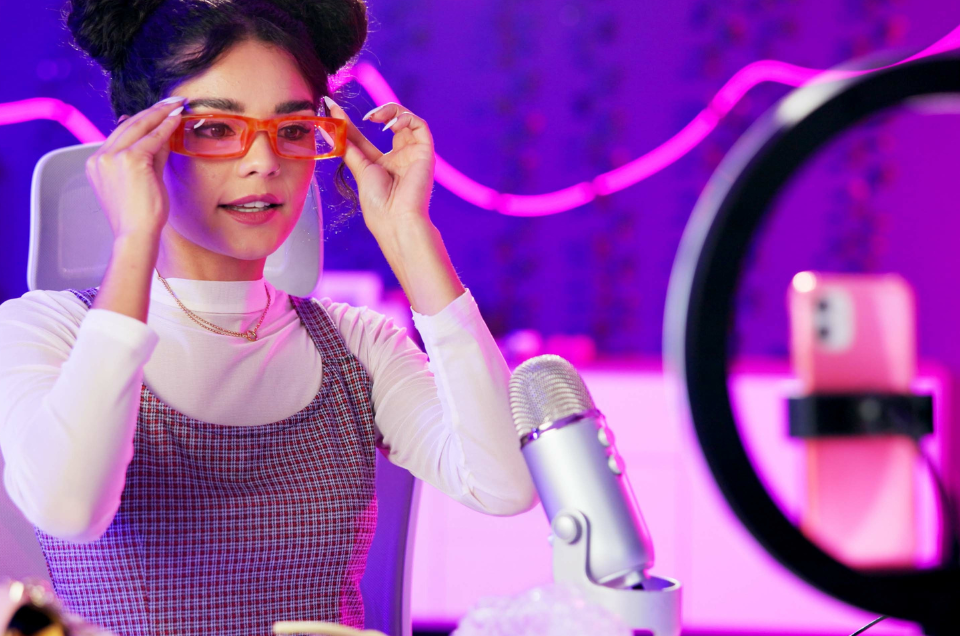AI-Powered Creativity: Will Machines Replace Human Marketers?

Artificial Intelligence (AI) is rapidly transforming the landscape of marketing and content creation. From writing ad copy to generating viral social media content in seconds, AI tools are helping marketers move faster than ever. But as technology evolves, one key question remains: Can AI fully replace human creativity, or will it always need that special human touch to make a real impact?
The Power of AI in Marketing & Creativity

AI is no longer a futuristic concept, it’s already embedded in many tools’ marketers use every day. These technologies help streamline processes and deliver results with incredible speed. Brands are taking advantage of AI in a variety of ways:
- Automated Content Generation: AI can write product descriptions, blog posts, and captions at scale, reducing manual workload and increasing content output.
- Personalized Advertising: By analyzing consumer behavior, AI helps brands serve hyper-relevant ads that speak directly to individual preferences.
- Design & Video Production: Visual tools powered by AI, like Canva AI, DALL.E, and Runway ML, enable teams to create graphics or edit videos in seconds.
- Chatbots & Conversational AI: Smart bots are improving customer service and enhancing engagement across platforms.
These tools aren’t just about automation, they’re changing how creative work is done, making it faster, more efficient, and more data-driven than ever.
AI vs. Human Creativity: The Key Differences

Despite all the advantages, AI still can’t replicate what makes human creativity so unique. While machines work with data, patterns, and logic, humans bring in emotion, experience, and abstract thinking.
AI’s strengths:
- Processes vast amount of data in seconds
- Operates 24/7 with consistent output
- Tailors campaigns through precise algorithmic targeting
- Automates repetitive or mundane creative tasks
Human strengths:
- Taps into emotion and authentic storytelling
- Think outsides the box with originality and bold ideas
- Understands cultural context and social nuance
- Crafts long-term vision and builds brand relationships
The best marketing doesn’t just grab attention, it makes people feel something. That emotional connection is still where human excel.
Where AI Falls Short
1. Lack of Emotional Depth
AI may mimic tone or sentiment, but it often fails to convey genuine emotion. Human storytelling can move people, create loyalty, and spark action, something AI struggles to replicate on its own.
2. Creativity Beyond Patterns
AI relies on patterns in existing data. True creativity often comes from breaking the rules, imagining something entirely new, or reacting to cultural shifts in real-time. That kind of spontaneity and boldness is difficult to program.
3. Cultural & Ethical Sensitivity
AI doesn’t fully grasp cultural nuance, social issues, or moral complexity. It can unintentionally reinforce bias or create tone-deaf content. Human oversight is essential for keeping campaigns inclusive and respectful.
4. The Human Element in Branding
At the heart of every successful brand is a relationship with its audience, community. And purpose. That sense of trust, empathy, and shared values is something only humans can build over time.
The Future: AI as a Creative Partner, Not a Replacement

Instead of fearing AI, marketers should see it as a collaborative tool. The future of creative work lies in blending human intuition with AI-driven efficiency. When used wisely, AI can enhance campaigns, generate, insights, and free up time for marketers to focus on strategy and vision.
Here’s how marketers can strike that balance:
- Use AI for content inspiration and market research, but let human creativity refine and shape the final product.
- Let AI handle testing, data analysis, or versioning, while you focus on crafting compelling narratives.
- Pair AI-generated visuals or text with human edits to add warmth, meaning, and emotional depth.
- Always review AI outputs through a human lens to ensure cultural sensitivity, tone, and relevance.
Extra Insight: The Role of Emotional Intelligence in the Age of AI
As AI becomes more advanced, emotional intelligence will be an increasingly valuable skill for marketers. It’s not just about knowing what works but it’s about understanding why it works. Being able to empathize with your audience, anticipate how they feel, and create content that genuinely resonates is a human trait that machines still can’t replicate.
Join the Conversation at Media Summit Malaysia 2025
AI is changing the game, but it doesn’t have to replace human creativity. Want to learn how to use AI to supercharge your creative process without losing the essence of your brand? Join us at Media Summit Malaysia 2025 and hear from top industry leaders on the future of AI-powered marketing.




